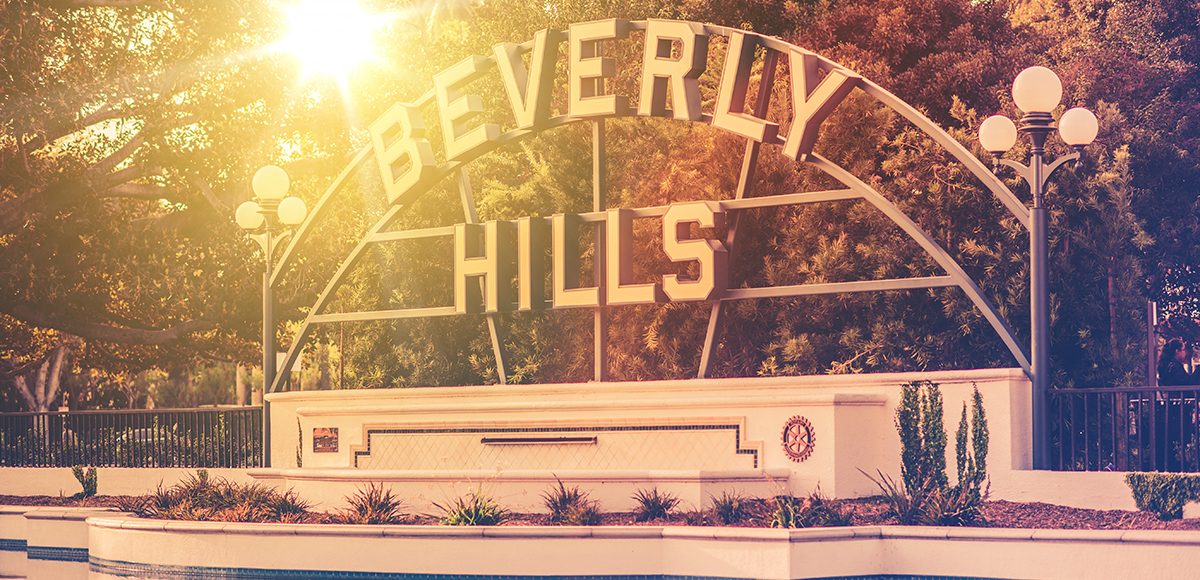Just four months ago, Beverly Hills’ Homeless Outreach team knew every single one of the transient individuals who used to spend nights in this City of 35,000. At the time, before the COVID-19 pandemic, there were generally just 17 individuals who spent nights “wherever they could” in the City according to Human Services Administrator Jim Latta. These days, he said, the faces are essentially all brand new.
“Before this, we knew everyone in the City, and now every day, there’s a new face,” he told the Courier.
As portions of the 70,000-strong transient population in Los Angeles County continue to pass daily through Beverly Hills, residents and businesses report an increase in the number of homeless.
“I have been flooded with calls and messages telling me there are abundantly more transients during COVID-19 than ever before,” Human Relations Commission Chair Ori Blumenfeld told the Courier. “I remind our residents and business owners that being transient is not a crime and to feel free to contact Human Services or the Ambassadors if they are otherwise unsure. We have also gone to great lengths to assist so many homeless, including veterans recently.”
While the precise number of transients passing though Beverly Hills in response to the global pandemic remains elusive, Latta told the Courier that between 2,000 and 2,500 transients pass through the City at any one time.
One longtime local business owner who asked to not be identified told the Courier that since the pandemic began, he’d had to call Beverly Hills Police about transients five times, something he had not done for years. “We’ve noticed absolutely an increase in the amount of homeless,” he said. “We have had to call the authorities because they were in the planters, in the trash, and laying around the building. The police are always terrific when we call about sending people out. And unfortunately, we have had to call quite a bit, because we have noticed an increase.”
On average, the City conducts 10 needs assessments with transient individuals each day, Monday through Friday. Both City Rangers and Ambassadors, which patrol City parks and the Beverly Hills Business Triangle nonstop, are able to offer the assessment to individuals who appear they would qualify and who express an interest in getting help. As part of the interaction, individuals are informed what services are available when they’re ready for assistance, such as food, shelter, a shower, mental health services, physical health services and benefits.
“Most of the folks we deal with are pretty severely mentally ill. What they really need is mental health treatment,” Latta told the Courier.
While the pandemic may have prompted neighboring cities to close their parks and bathroom facilities, Beverly Hills has continued to keep its parks and restrooms open until 10 p.m. (Excepting this week’s curfews.) Many of the transients passing through the City avail themselves to the local parks and restroom facilities.
Ranger Supervisor Daniel Hernandez, one of 20 Rangers with the City, told the Courier that he thought “addressing mental illness is the key” to helping transients.
“With the pandemic, it’s actually given us the opportunity to help deliver people into housing,” he said. “Our goal is to make sure they get help.”
In addition to helping transients find shelter through the County’s Winter Shelter Program, now extended through September in response to the pandemic, and the temporary Los Angeles City shelters at various recreation centers (including Pan Pacific, Westwood and Cheviot Hills), the City works with several other programs. This past fiscal year, the City funded roughly $1 million in grants for 20 different programs to help support transient populations and other vulnerable populations.
Nearby at the Saban Clinic, which facilitates a wealth of medical, dental and other services for vulnerable populations, in part through a grant from the City of Beverly Hills, roughly 30 transients are afforded free showers each day.
“Our relationship with Beverly Hills goes back for quite a number of years,” Saban Clinc Chief Marketing and Advancement Officer Adam Friedman told the Courier. “They support us financially every year to care for Beverly Hills residents that are uninsured or living at or below the poverty line.”
Following a full intake session to ensure that the Saban Clinic is able to assess their needs, everyone who wants to avail themselves of the free shower program receives a 15-minute private shower. About eight months ago, private donors paid to remodel the shower area so that it resembles a spa.
“It’s all about making that population feel that they’re cared for, that they’re loved. It’s all about building relationships,” Friedman said.







